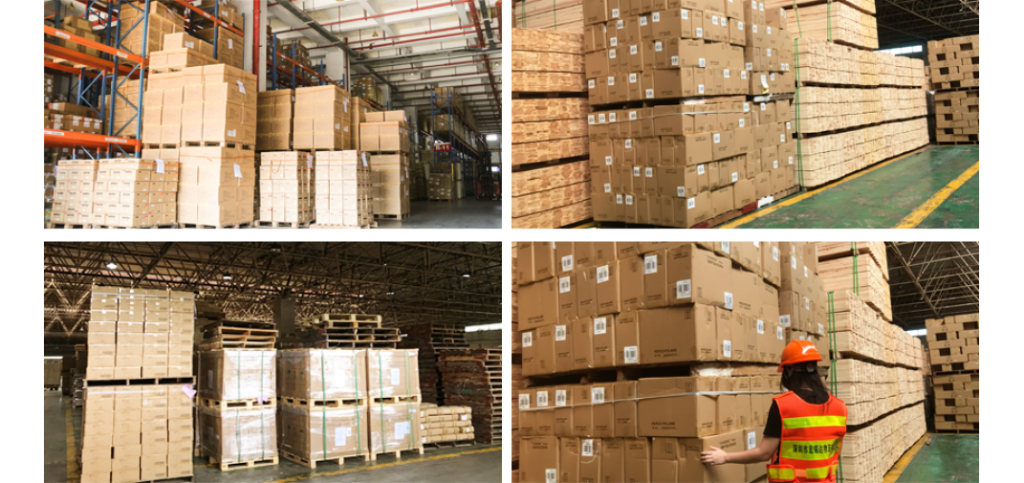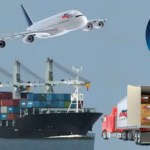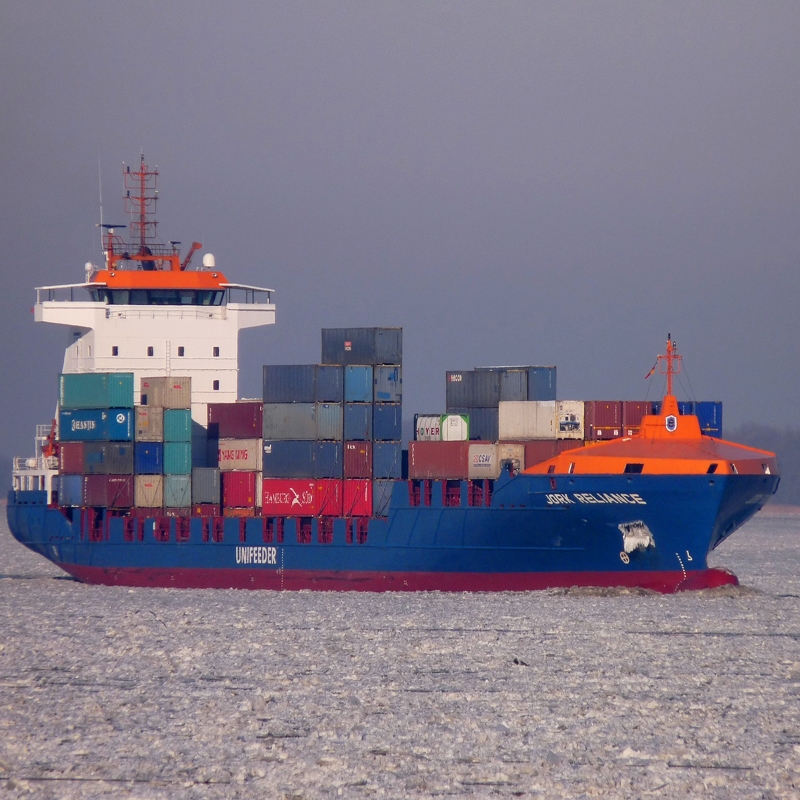Navigating the complexities of international shipping can be daunting, especially when importing goods from China to Ethiopia. Door-to-Door Shipping emerges as a highly efficient solution, offering a seamless logistics experience that simplifies the process for both businesses and individuals. This service ensures that your items are picked up from the sender’s location and delivered directly to the recipient’s doorstep, eliminating the hassle of managing multiple logistics providers. In this guide, we will delve into the essential components, benefits, and shipping methods associated with door-to-door shipping, providing you with valuable insights to facilitate your next import journey.

Introduction to Door-to-Door Shipping
Door-to-Door Shipping is a logistics service that facilitates the transport of goods from the sender’s location directly to the recipient’s address. This service is characterized by its convenience, as it eliminates the need for the customer to handle any part of the shipping process. It encompasses all necessary logistics, including pick-up, transportation, customs clearance, delivery, and any additional services required along the way.
Key Components of Door-to-Door Shipping
Understanding the key components of door-to-door shipping is essential for anyone looking to utilize this service. These components include:
-
Pick-Up Service: The process begins with the freight forwarder arranging the collection of goods from the sender’s designated location.
-
Transportation: The goods are transported via the most efficient mode of transport, which may include air freight, sea freight, or land transport, depending on the urgency and nature of the goods.
-
Customs Clearance: The service includes handling all customs-related paperwork and fees, ensuring that the goods comply with both exporting and importing regulations.
-
Delivery: The final leg of the journey involves the delivery of goods to the recipient’s doorstep, completing the service.
-
Optional Services: Many freight forwarders offer additional services, such as insurance services, to protect against potential loss or damage during transit and warehouse services if temporary storage is needed.
DDU vs. DDP in Door-to-Door Shipping
When engaging in door-to-door shipping, it is crucial to understand the difference between DDU (Delivered Duty Unpaid) and DDP (Delivered Duty Paid).
| Aspect | DDU (Delivered Duty Unpaid) | DDP (Delivered Duty Paid) |
|---|---|---|
| Responsibility | Seller is responsible for transport; buyer handles customs duties and taxes. | Seller covers all costs including customs duties and taxes until delivery. |
| Risk | Higher risk for the buyer as they manage customs clearance. | Lower risk for the buyer; seller manages all logistics. |
| Cost | Potentially lower upfront cost for the seller, but unpredictable costs for the buyer. | Higher upfront cost, but predictable expenses for the buyer. |
| Complexity | More complex for the buyer; requires knowledge of local customs regulations. | Easier for the buyer; seller handles customs processes. |
For businesses and individuals considering Door-to-Door Shipping from China to Ethiopia, understanding these terms can aid in making informed decisions regarding shipping options.
Benefits of Door-to-Door Shipping from China to Ethiopia
Hassle-Free Shipping Process
One of the most significant advantages of Door-to-Door Shipping is the hassle-free experience it offers. By opting for this service, customers can avoid the complexities traditionally associated with international shipping, such as coordinating with multiple service providers and managing logistics. Instead, the freight forwarder takes on all responsibilities, allowing the sender to focus on their core business or personal needs without the added stress of logistics.
Guaranteed Delivery to Your Doorstep
With Door-to-Door Shipping, customers can enjoy the peace of mind that their goods will be delivered directly to their specified location in Ethiopia. This feature is particularly beneficial for businesses that require timely delivery of products to clients or individuals who may not have the means to transport items themselves. The assurance of doorstep delivery enhances the overall customer experience and promotes reliability in logistics.
Tracking and Insurance Options Available
Modern shipping services often come equipped with advanced tracking technologies, allowing customers to monitor the progress of their shipments in real-time. This transparency enables senders and receivers to stay informed about the exact status of their goods throughout the shipping process.
Moreover, many freight forwarders, including Dantful International Logistics, offer insurance services, adding an extra layer of protection for valuable shipments. By insuring goods during transit, customers can alleviate concerns regarding potential loss or damage, ensuring that they are compensated in the event of unforeseen circumstances.
Suitable for Both Individuals and Businesses
The versatility of Door-to-Door Shipping makes it an attractive option for both individuals and businesses. For individuals, it provides a convenient solution for personal shipments, such as gifts or purchases from online retailers. For businesses, it streamlines the supply chain, allowing for efficient procurement of goods from China without the burden of managing complex logistics.
By leveraging the benefits of Door-to-Door Shipping, customers can enhance their shipping experience, ensuring that their goods reach their intended destination safely and efficiently. For reliable and professional freight forwarding services, consider partnering with Dantful International Logistics to take advantage of our comprehensive logistics solutions.
Shipping Methods Shipping from China to Ethiopia
When considering Door-to-Door Shipping from China to Ethiopia, it is essential to understand the various shipping methods available. Each method offers unique advantages, allowing customers to select the option that best meets their needs, whether for speed, cost-effectiveness, or shipment size.
Air Freight Door-to-Door Shipping
Air freight is one of the fastest methods of shipping goods internationally. This method is ideal for urgent shipments, especially for businesses that require quick delivery times to meet market demands or replenish stock.
Key Advantages of Air Freight:
- Speed: Air freight generally offers the quickest transit times compared to other shipping methods, making it suitable for time-sensitive cargo.
- Reliability: Airlines typically maintain strict schedules, which helps ensure that shipments arrive on time.
- Security: Air freight often involves tighter security measures, reducing the risk of theft or damage.
While more expensive than other options, the benefits of air freight door-to-door shipping make it an attractive choice for high-value or perishable goods.
Sea Freight Door-to-Door Shipping
Sea freight is another common method for Door-to-Door Shipping, particularly for larger shipments. It provides a cost-effective option for transporting bulk goods over long distances.
Options Under Sea Freight:
- LCL (Less than Container Load) Door-to-Door Shipping:
- This option is ideal for smaller shipments that do not fill an entire container.
- Several shipments from different clients are consolidated into one container, allowing customers to share transportation costs.
- LCL is suitable for businesses with limited stock or individuals sending smaller quantities.
- FCL (Full Container Load) Door-to-Door Shipping:
- FCL is the preferred choice for larger shipments where the customer has enough goods to fill a container.
- This method provides greater control over the shipment, as the client’s cargo is the only freight in the container.
- FCL is often more economical than LCL on a per-unit basis, especially for high-volume shipments.
Key Advantages of Sea Freight:
- Cost-Effective: Sea freight is generally cheaper than air freight, particularly for large shipments.
- Capacity for Bulky Goods: Ideal for transporting heavy or oversized items that may not be suitable for air transport.
Express Door-to-Door Shipping
Express door-to-door shipping combines speed and convenience, making it a favored option for urgent deliveries. This method utilizes expedited shipping services to ensure that goods arrive quickly at the recipient’s address.
Key Features of Express Shipping:
- Fast Transit Times: Express services typically guarantee rapid delivery, often within 1-3 business days.
- Real-Time Tracking: Customers can monitor their shipment closely, enhancing visibility and reducing anxiety during transit.
- Convenience: The express shipping provider handles all logistics, including customs clearance and final delivery.
Express shipping is ideal for businesses and individuals who require immediate access to their goods and are willing to pay a premium for expedited service.
You may be interested in the following related articles:
- Shipping From China To Botswana
- Shipping From China To Togo
- Shipping From China To Zimbabwe
- Shipping From China To Guinea
- Shipping From China To Zambia
- Shipping From China To Uganda
- Shipping From China To Cote d’Ivoire
- Shipping From China To Djibouti
- Shipping From China To Senegal
- Shipping From China To Sudan
Steps in the Door-to-Door Shipping Process
A seamless Door-to-Door Shipping experience relies on following a clear, systematic process. The steps involved ensure that shipments move efficiently from the supplier in China to the final destination in Ethiopia.
Pickup from the Supplier in China
The process begins with the pickup of goods from the supplier’s location in China. This step involves coordinating with the freight forwarder to arrange the collection of items, ensuring that they are securely packaged and ready for transport.
Export Customs Clearance in China
Once the goods are picked up, the freight forwarder manages the export customs clearance process. This step includes:
- Preparing and submitting necessary documentation to Chinese customs authorities.
- Ensuring compliance with export regulations and payment of any applicable duties.
- Coordinating with customs brokers to facilitate a smooth clearance process.
International Transportation (Air or Sea)
Following clearance, the goods are transported via the chosen method, either air freight or sea freight.
Considerations during International Transportation:
- Transit times vary significantly between air and sea; businesses should select the method that best aligns with their urgency and budget.
- Ongoing communication with the freight forwarder is essential for tracking shipment status and addressing any potential delays.
Import Customs Clearance in Ethiopia
Upon arrival in Ethiopia, the goods undergo import customs clearance. This step involves:
- Submission of required documents to Ethiopian customs, including invoices, packing lists, and any necessary permits.
- Payment of import duties and taxes, which may vary depending on the classification of the goods.
- Engaging a customs broker can streamline this process, ensuring compliance with local regulations.
Last-Mile Delivery to the Final Destination
Once customs clearance is completed, the shipment is ready for last-mile delivery. This final leg of the journey involves:
- Transporting the goods from the customs facility to the recipient’s specified address in Ethiopia.
- Ensuring that the delivery is completed in a timely manner while maintaining the integrity of the goods.
With a comprehensive understanding of the shipping methods and the step-by-step process of Door-to-Door Shipping, customers can make informed decisions when importing goods from China to Ethiopia. Partnering with a reliable freight forwarder like Dantful International Logistics can further enhance the shipping experience, providing valuable expertise and support throughout the process.
Cost Factors in Door-to-Door Shipping
Understanding the cost factors associated with Door-to-Door Shipping is essential for businesses and individuals looking to optimize their logistics expenses. This section will provide a breakdown of typical costs, the factors affecting pricing, and tips for cost optimization.
Breakdown of Typical Costs Involved
The costs associated with Door-to-Door Shipping can vary significantly depending on multiple factors. Here is a comprehensive breakdown:
| Cost Component | Description |
|---|---|
| Pick-Up Fees | Charges for collecting goods from the sender’s location. |
| Transportation Costs | Costs for shipping via air, sea, or land; often the largest expense. |
| Customs Clearance Fees | Fees for handling documentation and processing at customs. |
| Duties and Taxes | Government-imposed tariffs and taxes on imported goods. |
| Final Delivery Charges | Costs associated with delivering goods to the recipient’s doorstep. |
| Insurance Costs | Optional fees for insuring the shipment against loss or damage. |
| Storage Fees | Costs for warehousing goods if temporary storage is required. |
Factors Affecting Pricing
Several factors influence the overall pricing of Door-to-Door Shipping:
- Shipping Method: Air freight is generally more expensive than sea freight, affecting the cost based on urgency and shipment volume.
- Distance: Longer distances typically result in higher shipping costs due to increased transportation expenses.
- Cargo Type and Weight: Heavier and bulkier items incur higher shipping fees, particularly for air freight.
- Seasonality: Shipping rates can fluctuate during peak seasons or holidays, impacting overall costs.
- Customs Regulations: Different countries have varying import duties and taxes, which can significantly affect the total cost.
Tips for Cost Optimization
To make the most economical choices regarding Door-to-Door Shipping, consider the following tips:
- Consolidate Shipments: Using LCL (Less than Container Load) for smaller shipments can be cost-effective by sharing container space with other clients.
- Choose the Right Shipping Method: Assessing the urgency vs. cost can help determine whether air or sea freight is more suitable.
- Utilize Freight Forwarder Expertise: Partner with a reputable freight forwarder, such as Dantful International Logistics, who can negotiate better rates and streamline processes.
- Consider Insurance: While it adds a cost, insuring shipments can save money in the event of loss or damage.
- Plan Shipments in Advance: Avoid peak shipping seasons when rates are higher and plan shipments well ahead of time.
Transit Times in Door-to-Door Shipping
Transit times can significantly impact business operations and customer satisfaction. Understanding the estimated durations for different shipping methods, as well as factors that can affect delivery times, is crucial for effective logistics management.
Estimated Durations for Different Shipping Methods
The following table provides an overview of estimated transit times for various Door-to-Door Shipping methods from China to Ethiopia:
| Shipping Method | Estimated Transit Time |
|---|---|
| Air Freight | 3-7 days |
| LCL Sea Freight | 25-40 days |
| FCL Sea Freight | 20-35 days |
| Express Shipping | 1-3 days |
Factors That Can Affect Delivery Times
Several factors can influence transit times in Door-to-Door Shipping:
- Customs Clearance: Delays in customs processing can significantly extend shipping times.
- Weather Conditions: Adverse weather can disrupt transportation schedules and routes.
- Peak Shipping Seasons: Increased volume during holidays can lead to longer transit times.
- Distance and Route: The chosen route and distance directly affect how long the shipping process takes.
- Container Availability: For sea freight, the availability of containers can impact shipping schedules, especially in high-demand periods.
Choosing the Right Freight Forwarder
Selecting a reliable freight forwarder is crucial for ensuring successful Door-to-Door Shipping. Below are key considerations when choosing the right partner:
Look for a Reliable and Experienced Company
Research freight forwarders’ reputations and track records. Look for reviews, testimonials, and case studies to ensure you partner with a company that has demonstrated reliability.
Compare Shipping Rates and Transit Times
Request quotes from multiple freight forwarders and compare not only their rates but also their estimated transit times. This comparison enables you to choose a balance of cost-effectiveness and efficiency.
Ensure the Forwarder Offers Door-to-Door Service
It’s essential that the chosen freight forwarder provides comprehensive Door-to-Door Shipping services. Confirm that they can handle all aspects of the shipping process, including pick-up, customs clearance, and final delivery.
Check for Additional Services Like Customs Clearance
A forwarder offering additional services, such as customs clearance, can help streamline the shipping process. This support minimizes delays and ensures compliance with international regulations, making the process smoother and more efficient.
By evaluating these factors and making informed decisions, businesses and individuals can navigate the complexities of Door-to-Door Shipping effectively and efficiently.
FAQs
1. What is Door-to-Door Shipping?
Door-to-Door Shipping is a logistics service that transports goods directly from the sender’s location to the recipient’s address, encompassing all necessary logistics such as pick-up, transportation, customs clearance, and final delivery.
2. What are the key components of Door-to-Door Shipping?
The key components include:
- Pick-Up Service: Collection of goods from the sender’s location.
- Transportation: Transit of goods via air, sea, or land.
- Customs Clearance: Handling of paperwork and fees for compliance.
- Delivery: Final delivery of goods to the recipient’s doorstep.
- Optional Services: Additional offerings like insurance services and warehouse services.
3. What is the difference between DDU and DDP?
- DDU (Delivered Duty Unpaid): The seller is responsible for transport, while the buyer handles customs duties and taxes.
- DDP (Delivered Duty Paid): The seller covers all costs, including customs duties and taxes, making it simpler for the buyer.
4. What are the advantages of Door-to-Door Shipping?
- Hassle-Free Process: Eliminates complexities of international shipping.
- Guaranteed Delivery: Goods are delivered directly to the recipient’s address.
- Tracking and Insurance Options: Allows monitoring of shipments and provides protection against loss.
- Suitability for Both Individuals and Businesses: Ideal for personal shipments or business procurement.
5. What shipping methods are available for Door-to-Door Shipping?
Common shipping methods include:
- Air Freight: Quickest option for urgent deliveries.
- Sea Freight (LCL and FCL): Cost-effective for bulk goods; LCL is for smaller shipments, while FCL is for full containers.
- Express Shipping: Fastest option, often within 1-3 business days.
6. What factors affect the cost of Door-to-Door Shipping?
Cost factors include:
- Shipping method (air vs. sea)
- Distance and shipment size
- Customs clearance fees
- Duties and taxes
- Optional services like insurance
7. How long does Door-to-Door Shipping take?
Estimated transit times vary by method:
- Air Freight: 3-7 days
- LCL Sea Freight: 25-40 days
- FCL Sea Freight: 20-35 days
- Express Shipping: 1-3 days
8. How can I choose the right freight forwarder?
Consider:
- The company’s reliability and experience
- Comparison of shipping rates and transit times
- Availability of comprehensive Door-to-Door Shipping services
- Additional services offered, such as customs clearance

Young Chiu is a seasoned logistics expert with over 15 years of experience in international freight forwarding and supply chain management. As CEO of Dantful International Logistics, Young is dedicated to providing valuable insights and practical advice to businesses navigating the complexities of global shipping.





















 Afrikaans
Afrikaans Shqip
Shqip አማርኛ
አማርኛ العربية
العربية Հայերեն
Հայերեն Azərbaycan dili
Azərbaycan dili Euskara
Euskara Беларуская мова
Беларуская мова বাংলা
বাংলা Bosanski
Bosanski Български
Български Català
Català Cebuano
Cebuano Chichewa
Chichewa 简体中文
简体中文 繁體中文
繁體中文 Corsu
Corsu Hrvatski
Hrvatski Čeština
Čeština Dansk
Dansk Nederlands
Nederlands English
English Esperanto
Esperanto Eesti
Eesti Filipino
Filipino Suomi
Suomi Français
Français Galego
Galego ქართული
ქართული Deutsch
Deutsch Ελληνικά
Ελληνικά Kreyol ayisyen
Kreyol ayisyen Harshen Hausa
Harshen Hausa Ōlelo Hawaiʻi
Ōlelo Hawaiʻi עִבְרִית
עִבְרִית हिन्दी
हिन्दी Hmong
Hmong Magyar
Magyar Íslenska
Íslenska Igbo
Igbo Bahasa Indonesia
Bahasa Indonesia Gaeilge
Gaeilge Italiano
Italiano 日本語
日本語 Basa Jawa
Basa Jawa ಕನ್ನಡ
ಕನ್ನಡ Қазақ тілі
Қазақ тілі ភាសាខ្មែរ
ភាសាខ្មែរ 한국어
한국어 كوردی
كوردی Кыргызча
Кыргызча ພາສາລາວ
ພາສາລາວ Latin
Latin Latviešu valoda
Latviešu valoda Lietuvių kalba
Lietuvių kalba Lëtzebuergesch
Lëtzebuergesch Македонски јазик
Македонски јазик Malagasy
Malagasy Bahasa Melayu
Bahasa Melayu മലയാളം
മലയാളം Maltese
Maltese Te Reo Māori
Te Reo Māori मराठी
मराठी Монгол
Монгол ဗမာစာ
ဗမာစာ नेपाली
नेपाली Norsk bokmål
Norsk bokmål پښتو
پښتو فارسی
فارسی Polski
Polski Português
Português ਪੰਜਾਬੀ
ਪੰਜਾਬੀ Română
Română Русский
Русский Samoan
Samoan Gàidhlig
Gàidhlig Српски језик
Српски језик Sesotho
Sesotho Shona
Shona سنڌي
سنڌي සිංහල
සිංහල Slovenčina
Slovenčina Slovenščina
Slovenščina Afsoomaali
Afsoomaali Español
Español Basa Sunda
Basa Sunda Kiswahili
Kiswahili Svenska
Svenska Тоҷикӣ
Тоҷикӣ தமிழ்
தமிழ் తెలుగు
తెలుగు ไทย
ไทย Türkçe
Türkçe Українська
Українська اردو
اردو O‘zbekcha
O‘zbekcha Tiếng Việt
Tiếng Việt Cymraeg
Cymraeg יידיש
יידיש Yorùbá
Yorùbá Zulu
Zulu